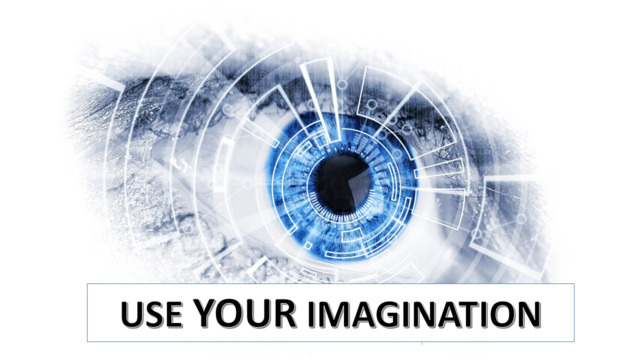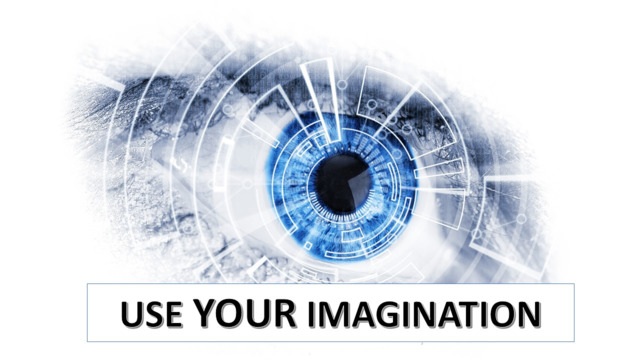Learn about brain health and nootropics to boost brain function
Use Your Imagination

Visualization can not only improve your life, but it can save your life. It can even enhance your performance without ever physically doing anything.

What if I told you that you could improve your shooting skills simply by imagining yourself shooting with a kind of accuracy and confidence like you’ve never known? Would you believe me, does it sound too good to be true? Well, researches at the Netherlands National Police Academy conducted an experiment that demonstrated this speculation to be true; officers who used mental images outperformed those who did not.
We’ve known for some time now that mental imagery and visualization improves performance. From athletes to professionals in the business world, those who have achieved greatness admit to using some form of visualization to enhance their performance. Imagination is a powerful tool. Looking around your own environment and community you’ll observe many buildings and other man-made objects that could not have been created without it first having been imagined in someone’s mind. Everyone uses visualizations whether they realize it or not. Making plans, whether they’re about relationships, your job, or travel, we visualize the goal and how we’re going to get there. It’s akin to your heartbeat, it’s so natural that we’re not even aware that it’s beating. But if you channel that imagery and direct your visualization you can improve your performance.
So, what does it take to really hone visualization skills? Picturing details. Once you include details in your visualization, goals and performance become more real. In fact, the brain will begin to form neural connections resulting from repeated visual imagery.
Guan Yue, an exercise psychologist at the Cleveland Clinic Foundation found that people who did a virtual workout over three months in their minds were able to increase their muscle strength by 13.5% versus 30% by the people who actually did work out. Visualization has been a popular method since the Soviets began using it in the 1970s to compete in sports. Professional golfer Tiger Woods has been using it since his pre-teen years. And the self-proclaimed greatest boxer in the world, Muhammad Ali, used a form of visualization to enhance his performance.
The benefits of visualizing also apply to children. Research from Beijing Institute of Physical Education and University of Ottawa found that child table tennis players between the ages of 7 to 10 performed better when they used visualizations (mental imagery).
Getting back to the research conducted in the Netherlands, the Force Science Institute reports that university scientists conducted testing on 66 officers. To begin with, a baseline was established by using a simple firearms session for all the participants. Afterwards some of the testing group were shown a seven-minute session during which they imagined themselves shooting “with unfailing accuracy even when under the stress of an attack…” The control group was listening to an unrelated audio input. Next, the 66 officers were exposed to a simulated gun battle. The result, the mental imagers outperformed the control group not exposed to the gunfight images. In fact, those who had not imagined their performance were out-performed consistently and their targeting skills under fire showed significant erosion.
From this research the scientists concluded that imagery exercises should be incorporated into police training and practice. Moreover, officers should “use mental imagery whenever they have a spare moment” to improve their performance in what may be life-or-death situations. (A report of the study, titled “Positive Effects of Imagery on Police Officers’ Shooting Performance under Threat,” appears online in the journal Applied Cognitive Psychology.)
According to Psychology Today, studies of the brain reveal that thoughts produce the same mental instructions as actions. Mental imagery impacts many cognitive processes in the brain: motor control, attention, perception, planning, and memory. So, the brain is getting trained for actual performance during visualization. It’s been found that mental practices can enhance motivation, increase confidence and self-efficacy, improve motor performance, and prime your brain for success.
Visualization is an invaluable tool for law enforcement in an age when training is not always available or up to par. Violence against police officers is ever-increasing, while respect for law is decreasing. We need to visualize how we will respond appropriately to everything from deadly force encounters to verbal assaults. Not only should we try to visualize occasionally, but we should do it on a regular basis to create those neurons in our brains that shorten our reaction time.
Improve your life and your performance by mental visualization and become a success, a winner, and the best version of yourself for everyone in your life.
Stay Safe, Brothers and Sisters!
Join the conversation!
This site requires you to login or register to post a comment.
No comments have been added yet. Want to start the conversation?
Click here to view full article
